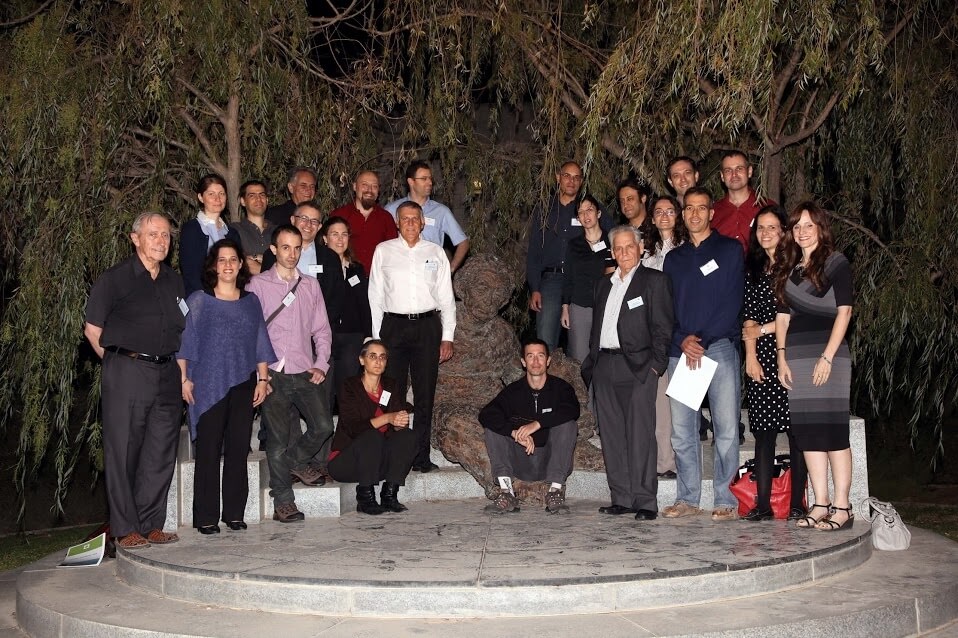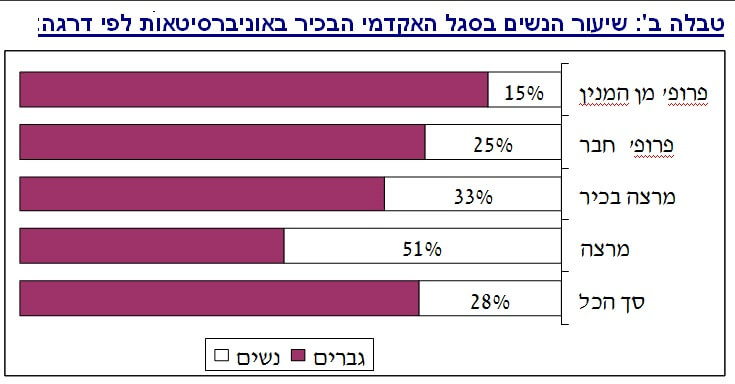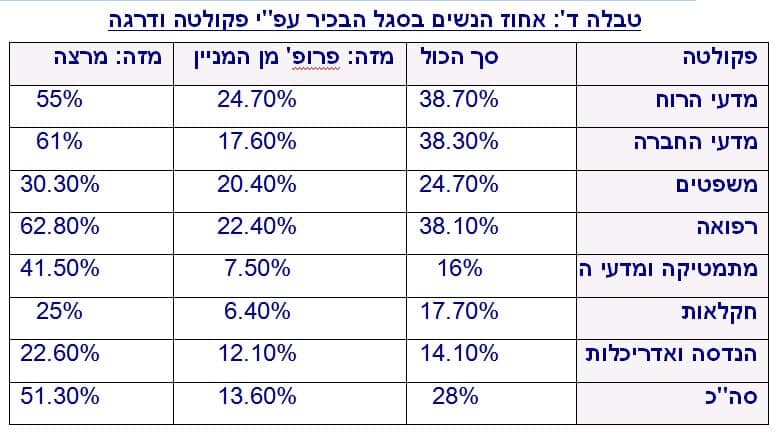The proportion of women in Israel in engineering, mathematics, computer science and physical sciences is relatively low, while their proportion in other professions such as education and auxiliary medical professions is very high

The first gathering of the Young Academy was held today (Monday) at the National Academy of Sciences in Jerusalem under the title "Gender and Academic Career in Israel". The conference illuminated and sharpened the subject of gender equality, the academic career and the question of the representation and advancement of women in universities. The conference also dealt with the promotion, integration and empowerment of women in universities and gender equality in the academic system in a new light. The members of the steering committee of the conference are members of the young academy: Dr. Tamar Herzig, Prof. Talia Fischer and Prof. Michal Feldman and Dr. Sharon Zuckerman.
Data published at the conference shows that over the years there has been a significant increase in the proportion of women studying for all degrees and they make up more than 50% of all students. For example, the participation rate of women among those studying for a master's degree reached 59.2% in the 53 academic year, and the percentage of women among PhD students reached a record high of 28% in the last academic year. [See below in Table A at the end of the message data on women's studies in the academy]. However, the representation of women in the senior academic staff in Israel is low and stands at only about 15%, and at the highest rank - (full professor) their rate drops to 7% in all research institutions in Israel (and only XNUMX% at the Technion). Thus, the higher the academic rank, the lower the percentage of women among the entire academic staff.

An international comparison with different countries shows that Israel is among the leading countries in the proportion of women among PhD graduates. But, despite the significant increase in the proportion of women with doctorate degrees, Israel is at the bottom of the list of European countries in terms of their participation in senior teaching staff at universities. [See below Table C at the end of the announcement on the representation of women in the academic staff in European countries and Israel. Also, the proportion of women in Israel in engineering, mathematics, computer science and physical sciences is relatively low, while their proportion in other professions such as education and auxiliary medical professions is very high. [See below Table D at the end of the announcement on the percentage of women in the senior faculty by faculty and rank.]

At the gathering we also discussed the unique difficulties and barriers that hinder women's ability to advance and succeed. However, the young academy sought to contribute to the creation of a "new discourse" on the issue of gender advancement in the academic system.
The uniqueness of the conference was that young female researchers from various fields of thought and science were presented, who are in terms of example and "role models" who followed their ambitions and dreams and succeeded in fulfilling their academic careers. Initiatives and solutions that arise, are discussed and implemented in recent years at universities in Israel were also presented. Among these can be cited as an example the debate surrounding a new procedure called "15:30" (in order to allow researchers and doctoral students who are parents to participate in departmental lectures and seminars), gender changes in the regulations that allow the extension of the probationary period for tenure for female researchers who have given birth, a declaration of equality Gender in the academy, a reporting procedure on the gender segmentation of candidates for an academic position, an activity to encourage post-doctoral studies among female Ph.D. graduates, steps towards gender balance in the appointment committees, a partial exemption from teaching for maternity researchers, and more.
The gathering was held against the background of promoting the representation of women in academia and Israeli society in general - a topic that is on the public agenda, also frequently discussed in legislative initiatives and in the media. The "new discourse" offered by the conference hopes to encourage female researchers at the beginning of their career to integrate into the academic staff, and those responsible in universities and the academic system to foster and encourage this trend. The gathering was opened by Prof. Ruth Arnon, the president of the Israel National Academy of Sciences, who called for the implementation of measures that would encourage gender equality in the academic system, and to take initiatives that would assist in the promotion and integration of young women scientists in the world of academia and research in Israel. Such a change, Prof. Arnon emphasized, contributes not only to the academic system, but benefits society as a whole and the young academy has a central role in encouraging the discussion of issues of this type and promoting initiatives to solve them.
The Young Academy operates independently, with the backing and assistance of the Israeli National Academy of Sciences, which joined a global trend and established the Young Academy in November 2012, with 26 scientists as members. The members of the Young Academy of Sciences are first-class scientists who stand out in their fields. They were chosen as researchers who demonstrated excellence in research, original thinking and a unique contribution and even won prestigious awards and prestigious competitive research grants. The members of the Young Academy were elected for a fixed period of four years. Among the goals of the young academy is also promoting the status of the young scientist in Israel, promoting the relationship between science and policy makers and between science and society, fostering the relationship and cooperation between young researchers and encouraging joint research and collaborations with young researchers around the world.
Based on a press release of the Israel Academy of Sciences

2 תגובות
Unfortunately, as a graduate of two degrees in engineering + a degree in engineering, women in the fields of engineering and pure sciences are an exception that does not indicate the rule.
In my opinion, the difference lies in the fact that a man who is an average engineer will find a job more easily than a woman who is an excellent engineer.